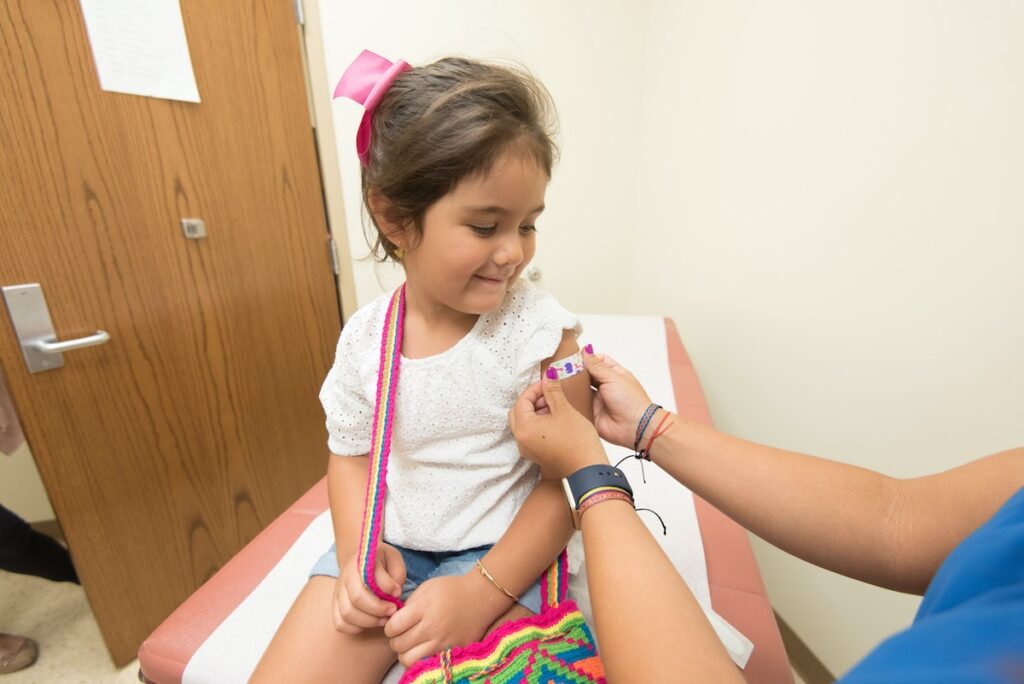When parents bond with their newborn baby, they are providing an essential part of their baby’s development and laying a foundation for their relationship.
For some parents, they may feel a bond right away with their newborn, while for others, it may take longer. It’s important to remember that bonding is a process that doesn’t have to happen right away and will grow over time.
Forming a Bond With Your Baby
At your baby’s birth, biology gives you a boost to help you and your baby form a bond. You, your partner, and your baby all naturally produce oxytocin, what is referred to as the “love hormone.” This helps jump start your bonding and naturally makes you want to love and care for your new baby.
Even after birth, both you and your baby will continue to get that oxytocin boost whenever you’re nurturing your baby and being in contact with them. Take time to relax and enjoy your baby’s presence and do some of the activities below to help develop your bond.
Skin-to-Skin Contact
Skin-to-skin contact is the practice of placing your newborn baby chest-down on your bare chest immediately after birth. This has many benefits for both mom and baby, including jumpstarting breastfeeding, stabilizing your baby’s temperature, calming your newborn, and helping your bond form. Your partner can also have a turn with skin-to-skin with your baby as well. This can be helpful when you are unable to do skin-to-skin right away.
In the days or weeks after your baby’s birth, you may continue to do skin-to-skin sessions with your baby. Strip your baby down to a diaper and lay a blanket over their body as they lay on your chest. A great time to do this is during breastfeeding, bottle feeding, or after a bath.
If your baby is in the NICU, you and your partner may be able to have skin-to-skin contact with your baby as soon as they are stable.
Breastfeeding
Breastfeeding benefits both you and your baby in many ways, including fostering a strong bond between you. Every time you nurse your baby, your body will release not only that “love hormone” oxytocin but also prolactin, which produces a peaceful sensation that allows you to relax. For many moms, nursing is a positive experience that helps them feel closer and more connected with their baby.
Even if you are bottle feeding your baby, feeding time still provides a special opportunity to bond. When bottle feeding, cuddle your baby, look them in the eye, and talk or sing to them while they eat.
Touch
Having physical touch also is essential to your baby’s physical and emotional development. It helps them feel comforted and calm, and that close physical connection helps strengthen your bond. When holding your baby, try gently rubbing their backs or stroking their head. If they fall asleep on your chest, feel their warmth and breathing, smell that newborn smell, and enjoy this time together.
Singing or Talking
Even though new babies can’t talk, they can still greatly benefit from having their parents sing and talk to them before they can form words. Making regular eye contact with your baby and talking to them helps your bond grow as well. Newborns see best about 6-10 inches away, so when talking to your baby, try to stay in that range. Talk and sing to them, and they’ll soon be responding to you with coos and other sounds. After about two months, you’ll get your first smiles and giggles and introduce new fun into your interactions.
When You Don’t Bond at First
If you’ve just had a baby and don’t feel a connection, you’re not alone. Some parents have a harder time at the beginning, especially if they’ve had a traumatic birth experience or were separated from their baby after birth. Even having a demanding labor can leave new moms exhausted and drained and make it difficult to focus on forming a bond with their newborn.
Having the baby blues or postpartum depression can also interfere with a mother’s ability to bond with their baby.
It’s important to know that if you don’t immediately feel a connection, you aren’t harming your relationship. Remember, creating a bond is a process and will grow over time.
Focus on getting care for yourself, whether it’s just giving yourself time to recover and sleep, joining a support group for birth trauma, or contacting your doctor or therapist about postpartum depression. Reach out to your prenatal provider, your baby’s pediatrician at Pediatrics West, or another provider you trust to get help.


